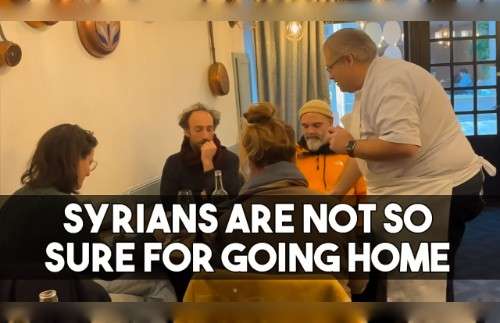
A Myanmar woman trafficked to China seven years ago and who bore four children while in captivity has been returned to her family, an NGO worker and the woman’s sister told RFA Monday.
The 47-year-old woman, whose leg had been broken by her captors, was found by Chinese police and transferred to Myanmar authorities in the border town of Muse in Myanmar’s northern Shan state on Nov. 1, they said. She was then sent back to her home in Bago city in central Myanmar’s Bago region on Sunday.
Her relatives requested that RFA’s Myanmar Service not publish the name of the woman.
“She has a broken leg and is mentally disabled,” said Thaung Htun from the Muse Humanitarian Organization which helped the woman return home.
“She was trafficked, forced to get pregnant, and has had four babies,” he said. “She is now 47 years old. They must have thrown her out as she is getting old.”
Thaung Htun said Chinese authorities found the woman throwing away Chinese currency notes along a road, Thaung Htun said.
Chinese police detained the woman and transferred her to immigration authorities, who in turn handed her over to Myanmar authorities, he said.
Those authorities then contacted Thaung Htun to take the woman to an appropriate medical facility, he said.
Because he did not know the woman’s permanent address at the time, Thaung Htun said he was arranging to transfer her to Yangon’s Ywathargyi Psychiatric Hospital.
The woman was abducted when she and her aunt got lost while they were in Yangon to visit another relative, her older sister Aye Aye Than said.
“She and her aunt were eating mohinga [Burmese noodle soup] at a stand [in a market], and they were believed to be taken away,” she told RFA.
“It has been seven years since she’s been gone,” she said. “As she told us, a woman named Ma Wai who lives in China had taken them.”
No one has heard anything from the aunt who was abducted, Aye Aye Than said.
Before the abduction, her sister was mentally sound, but now is a bit deranged, she said.
“She was mentally fine before,” she said.
“Her leg is also recovering well,” Aye Aye Than said. “She said her leg had been twisted and broken by the captors, probably to prevent her from escaping.”
The trafficked woman told her family that her Chinese “hosts” gave her some cash and sent her back, her sister said.
“It was around 30 or 40 bills,” Aye Aye Than said. “She said the money has been confiscated,” but did not specify whether Chinese or Myanmar authorities had taken the banknotes.
At the mercy of traffickers
Each year during the past decade, hundreds of women from Myanmar have been trafficked to China to be sold as brides to Chinese men or used as surrogate mothers, according to the Myanmar human rights group Garuna.
Police Chief Kyaw Nyunt of Myanmar’s Anti-Human Trafficking Task Force in Muse district told RFA in February that many trafficked women have been tricked into crossing the border with promises of a better life, but once they arrive in China, they are at the mercy of traffickers.
He said most of the trafficked victims are women from central and lower Myanmar — areas where poverty rates are above 30 percent and reach as high as 46 percent in Ayeyarwady region.
He said most of the trafficked victims are women from central and lower Myanmar — areas where poverty rates are above 30 percent and reach as high as 46 percent in Ayeyarwady region.
“It is important not to trust everyone, to be cautious, and not to go after the money,” Aye Than said as a warning to other women.
International rights groups point out that women from Myanmar’s conflict-affected areas are particularly vulnerable to being trafficked with the promise of well-paid jobs in China.
A report issued in March by New York-based Human Rights Watch (HRW) found that women from families affected by fighting between Myanmar’s military and ethnic armed organizations in Kachin state and northern Shan state have been routinely trafficked into China under the guise of employment to fill a shortage of women across the border.
HRW called on China and Myanmar to implement more effective and coordinated prevention, law enforcement, and assistance to victims of trafficking in women for marriage.
Reported by Tin Aung Khine for RFA’s Myanmar Service. Translated by Ye Kaung Myint Maung. Written in English by Roseanne Gerin.
Copyright © 1998-2016, RFA. Used with the permission of Radio Free Asia, 2025 M St. NW, Suite 300, Washington DC 20036. https://www.rfa.org
From the Massive 2004 Earthquake and Tsunami,Survivors and Advocates Reflect on Lessons
Ukraine Reveals Handwritten Letter of a Fallen North Korean Soldier in Kursk
Syrians Are Not So Sure for Going Home
Golan Heights Druze Welcome New Syrian Rulers
Tibetans Demand Apology from the British Museum for Use of ‘Xizang’
Escaping from Scam Center on Cambodia’s Bokor Mountain
UN Security Council Meets to Discuss Children and Armed Conflict
10 Shocking Revelations from Bangladesh Commission’s Report About Ex-PM Hasina-Linked Forced Disappearances
If you want to contact us
For latest updates
From our Archive














